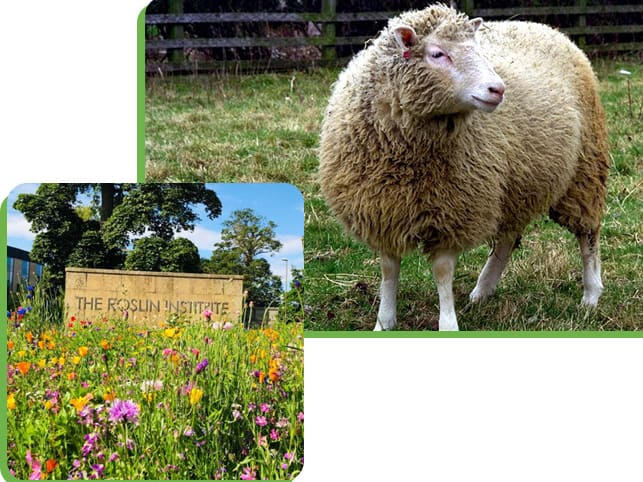
June 8, 2021
1623158224
 ©Roslin Institute
©Roslin Institute
Scottish biotech firm Roslin Technologies is set to become a major player in UK cell-cultured meat with the appointment of Ernst van Orsouw as its new chief executive. Working closely with the Roslin Institute – home of Dolly the world-famous cloned sheep – Roslin Technologies will begin a commercialization drive for its animal stem cell platform for cell-cultured meat production.
“Roslin Technologies is the jewel in the crown of Scottish and British agribusiness”
Set up in 2016 with the focus of meeting the protein needs of an expanding human population, Roslin Technologies is one of the UK’s leading agribusiness growth prospects. Van Orsouw joins with more than 15 years experience in agribusiness, with the short-term focus now the securing of sales and partnership agreements from cell-cultured meat companies for its growing portfolio of stem cell lines.
 © Roslin Technologies – Ernst van Orsouw
© Roslin Technologies – Ernst van Orsouw
In addition to genomic breeding techniques – including for insects, Roslin also deploys its technology into solutions for animal health and the veterinary sector. Along with plant-based protein, cell-cultured protein production is exploding, with investors drawn to its potential to completely disrupt traditional food systems whilst protecting against the environmental impact of increased food production.
Van Orsouw said: “Roslin Technologies is the jewel in the crown of Scottish and British agribusiness, and I am excited to join at this stage in the company’s growth. Over the last few years, the company has built a world-class scientific platform that can fundamentally disrupt key areas of the agtech industry. The commercial potential of Roslin Technologies’ offerings can now be brought to market, from proprietary stem cell lines for cultivated meat and animal health, to genomic breeding programmes for insects and traditional livestock.”
